June 2024 roundup
MSU Board of Trustees visits Flint for retreat, community engagement and board meeting
The Michigan State University Board of Trustees held its retreat and June meeting for the first time in Flint. The trustees’ visit underscored MSU’s commitment to community engagement and collaboration.
The trustees met with various Flint community partners who are instrumental in driving positive change in the city. The university extends a special thank you to the Charles Stewart Mott Foundation for hosting parts of the visit and to Dean Aron Sousa, Dr. Jennifer Johnson, and Dr. Mona Hanna-Attisha and their teams for the transformative work in the Flint community.
As part of their visit, the trustees toured significant landmarks in downtown Flint, including the historic the Capitol Theatre and the Flint Farmers' Market.
The board’s visit to Flint signifies a continued commitment to community outreach and academic collaboration, reflecting MSU’s broader mission to serve and uplift diverse communities across Michigan.
-
PHOTOS: MSU Board of Trustees in Flint
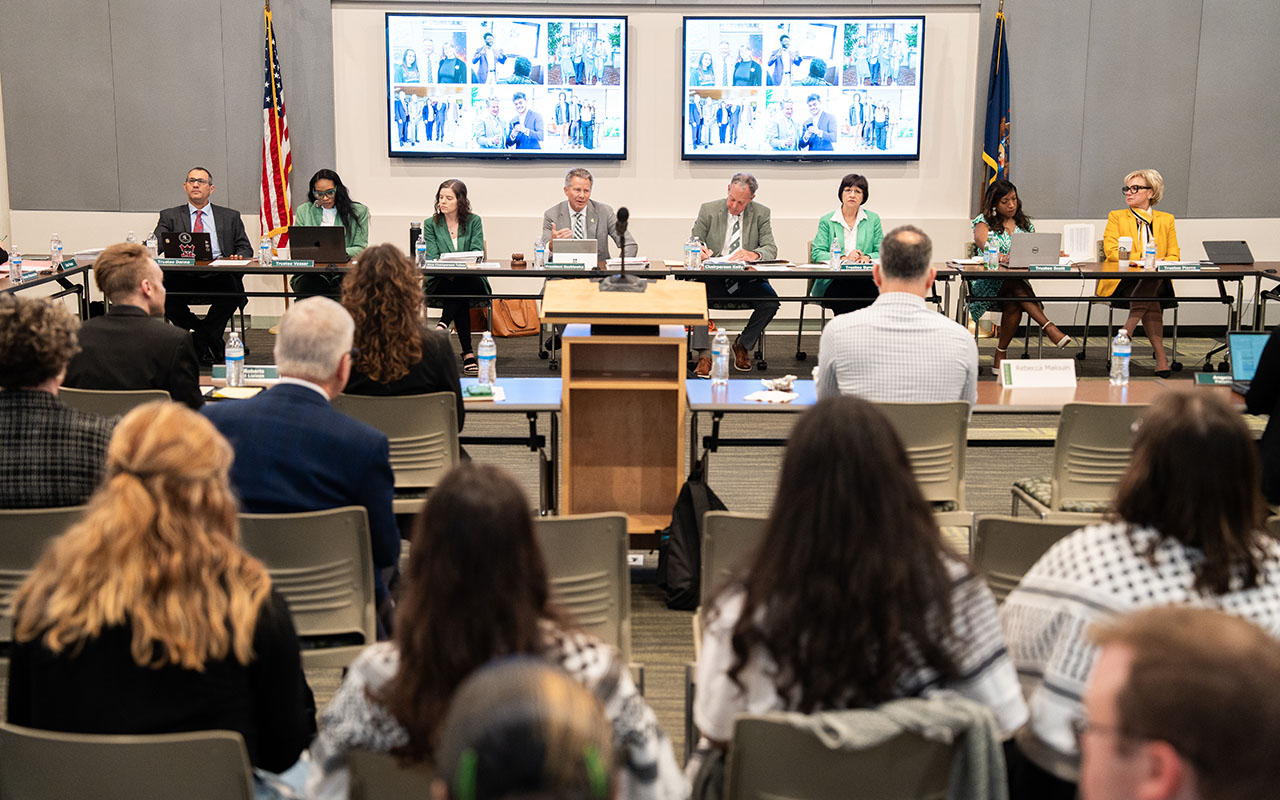
Board of Trustees held its retreat and June meeting in Flint, marking the board’s first official visit to the city.
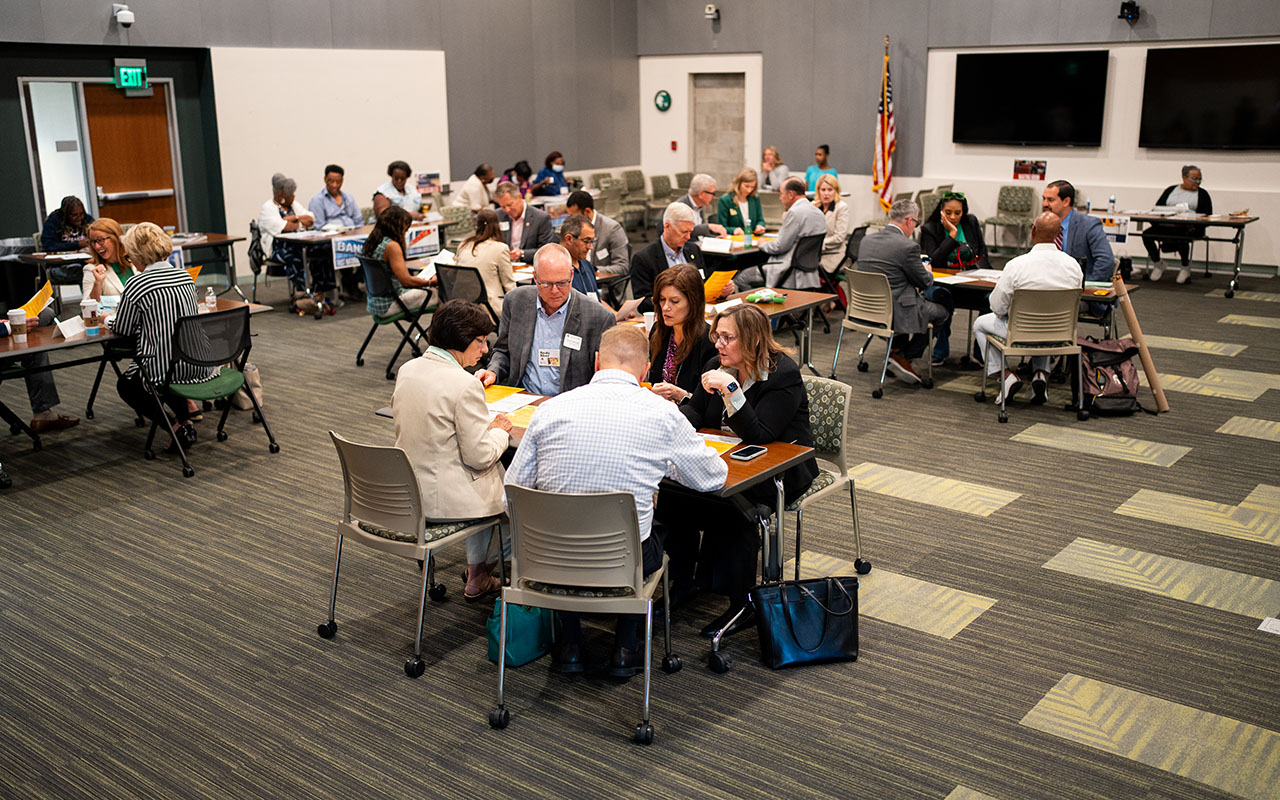
Board of Trustees participated in a Poverty Simulation.

Trustee Sandy Pirece talking to Dr. Mona Hanna at the Trustee Reception held at Flint Institute of Arts.
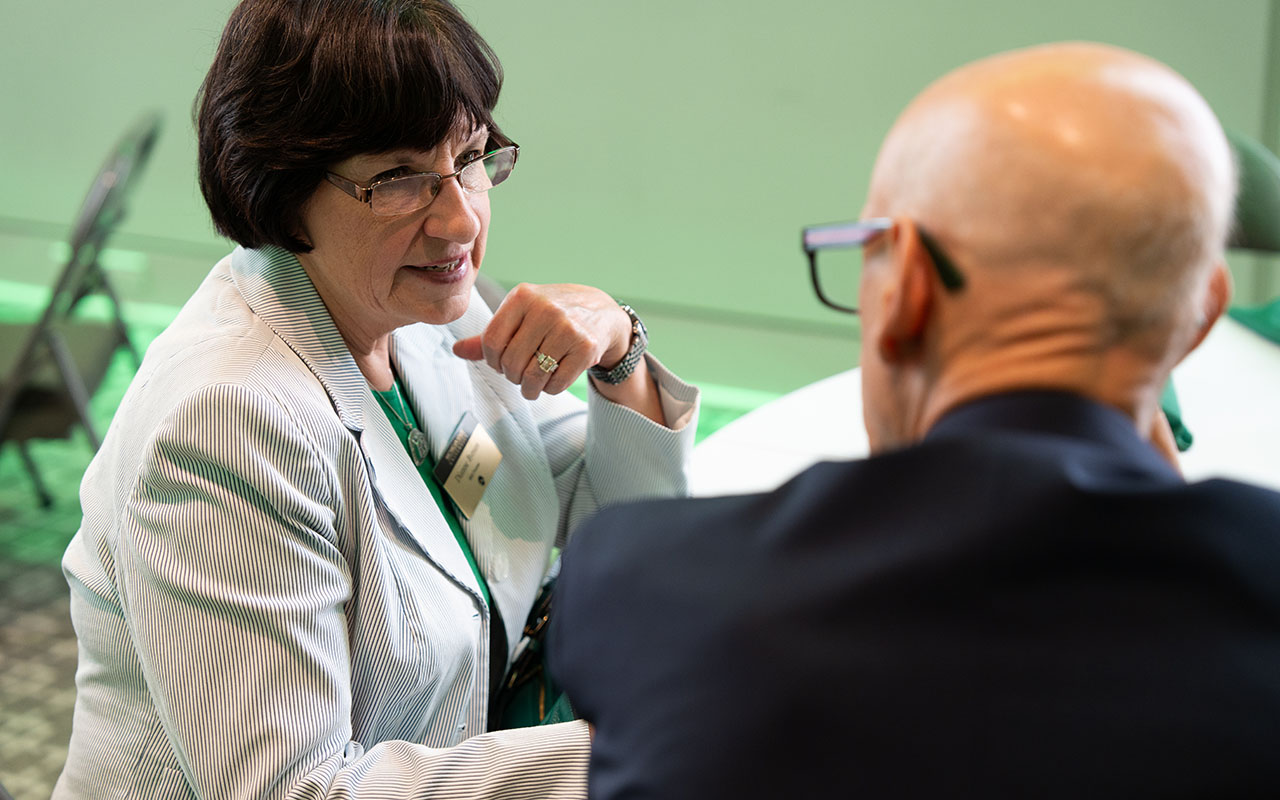
Trustee Diana Byrum talking with guests at the Trustee Reception held at Flint Institute of Arts.
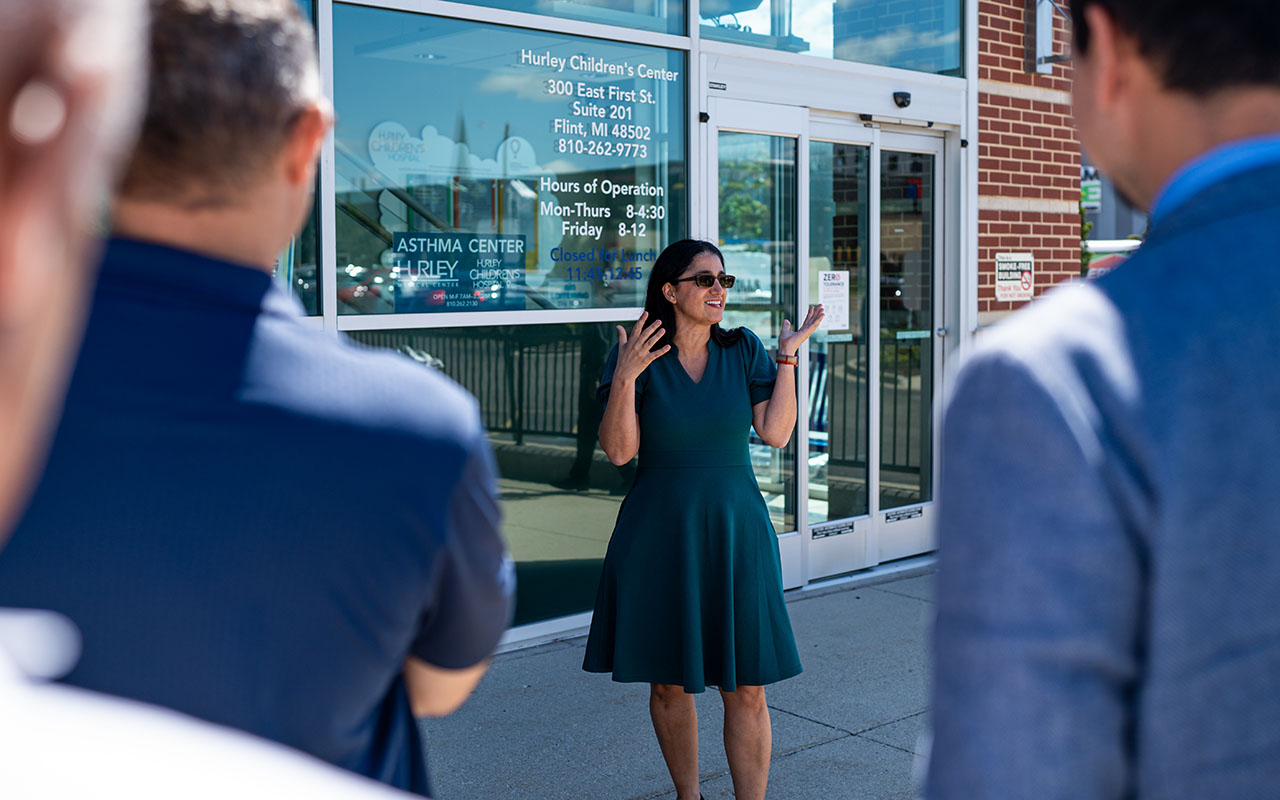
Dr. Mona Hanna giving President Guskiewicz and Board of Trustees a tour of Hurley Children's Center.
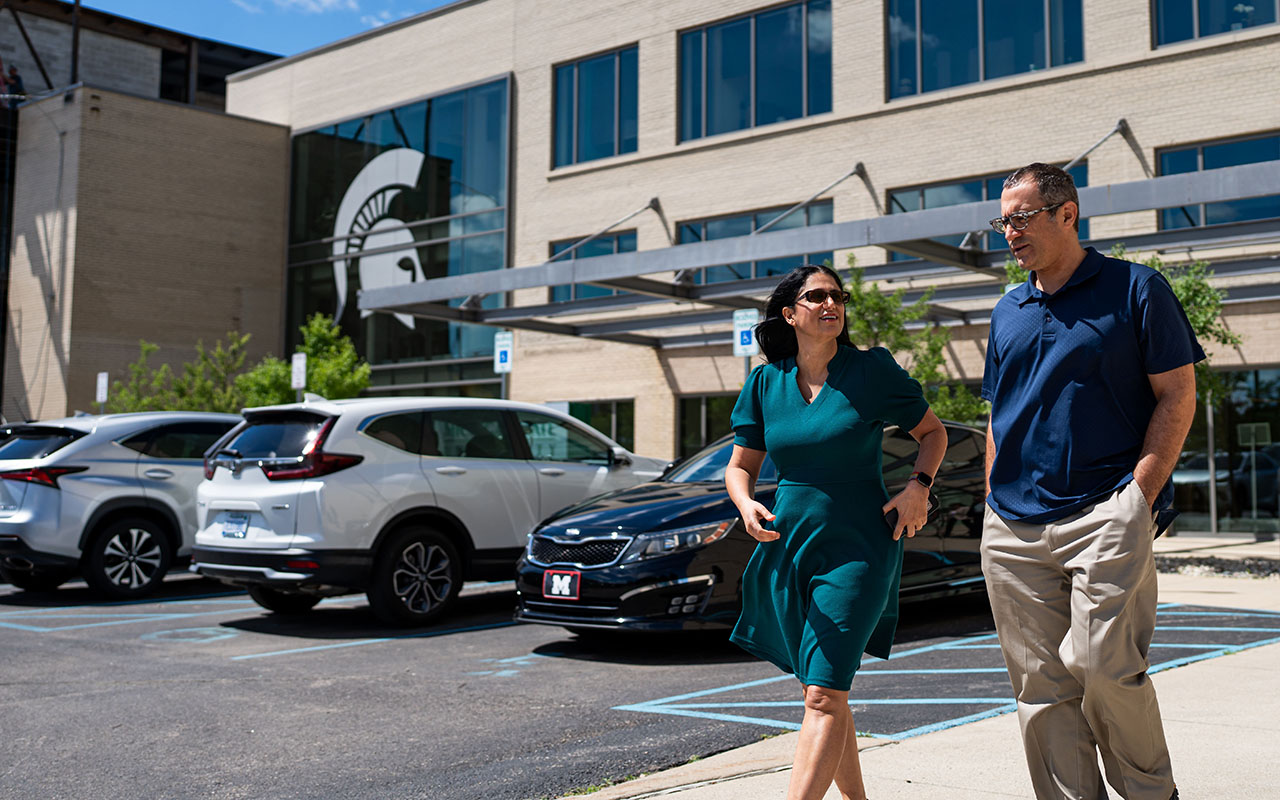
Dr. Mona Hanna talking to Trustee Dennis Denno.
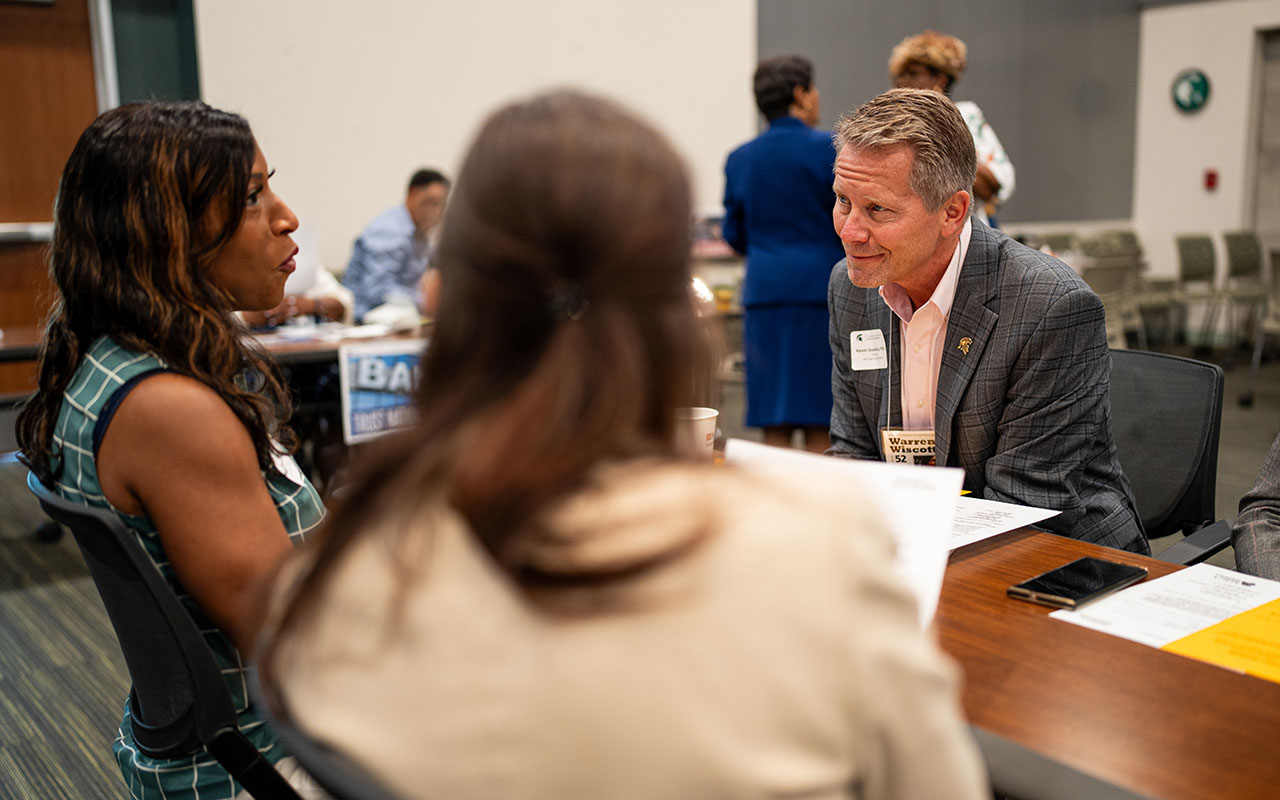
Trustee Brianna Scott talking to President Guskiewicz during the Poverty Simulation.
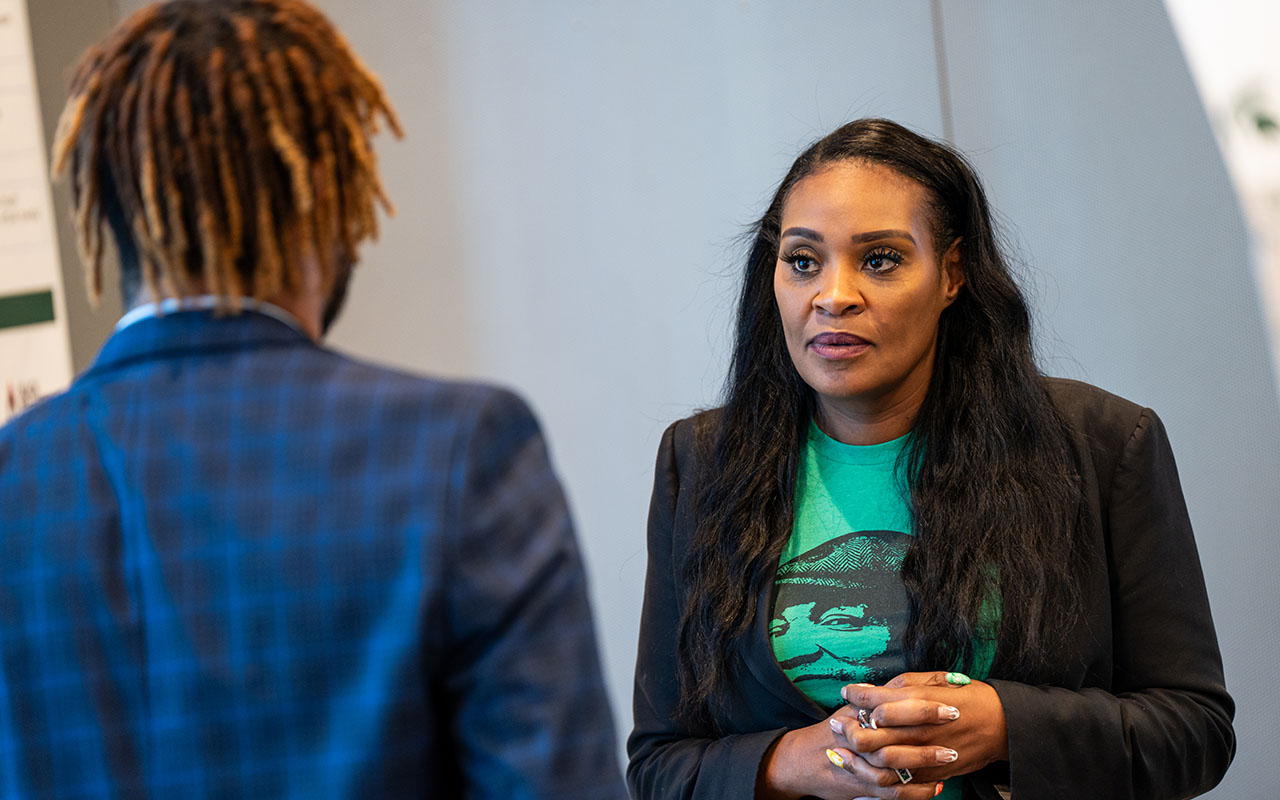
Trustee Rema Vassar talking to a student from the Flint Public Health Youth Academy.
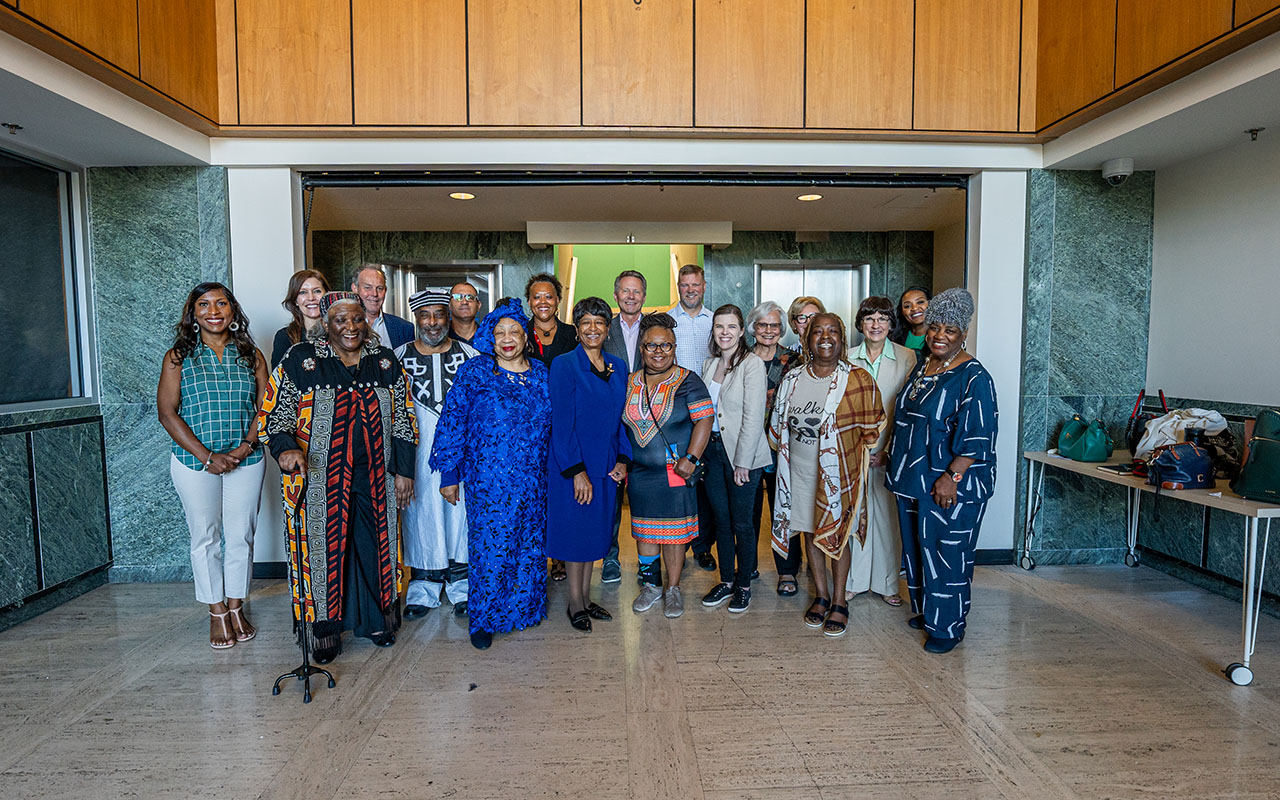
Board of Trustees and President Guskiewicz met with community members and partners.

Chair Dan Kelly participating in the Poverty Simulation.

Vice Chair Kelly Tebay talking with Dean Aron Sousa and Dr. Jennifer Johnson at the Trustee Reception held at Flint Institute of Arts.
The MSU Board of Trustees approved the university’s fiscal year 2024-25 operating budget presented by the administration, which includes tuition and fee rates for the 2024-25 academic year. The operating budget continues to reflect the direction set forth in the 2030 Strategic Plan, which is built upon support for our mission of teaching and learning, research, and outreach. These pillars are evidenced by the focus on academic and research excellence, faculty and staff success, student success, and investments in physical and financial sustainability. That vision includes ensuring that resources continue to be deployed strategically and effectively, with a focus on keeping the cost of education affordable for our students. Additionally, the budget will support funding the completion of our multicultural center and continuing the inclusivity-focused 1855 Professorships. This fall, MSU will offer the new Spartan Tuition Advantage, a gift aid program that will eventually provide 6,000 qualifying resident MSU Pell-eligible students with free tuition.
Contact: Mark Bullion, University Communications: media@msu.edu or 517-353-7077.
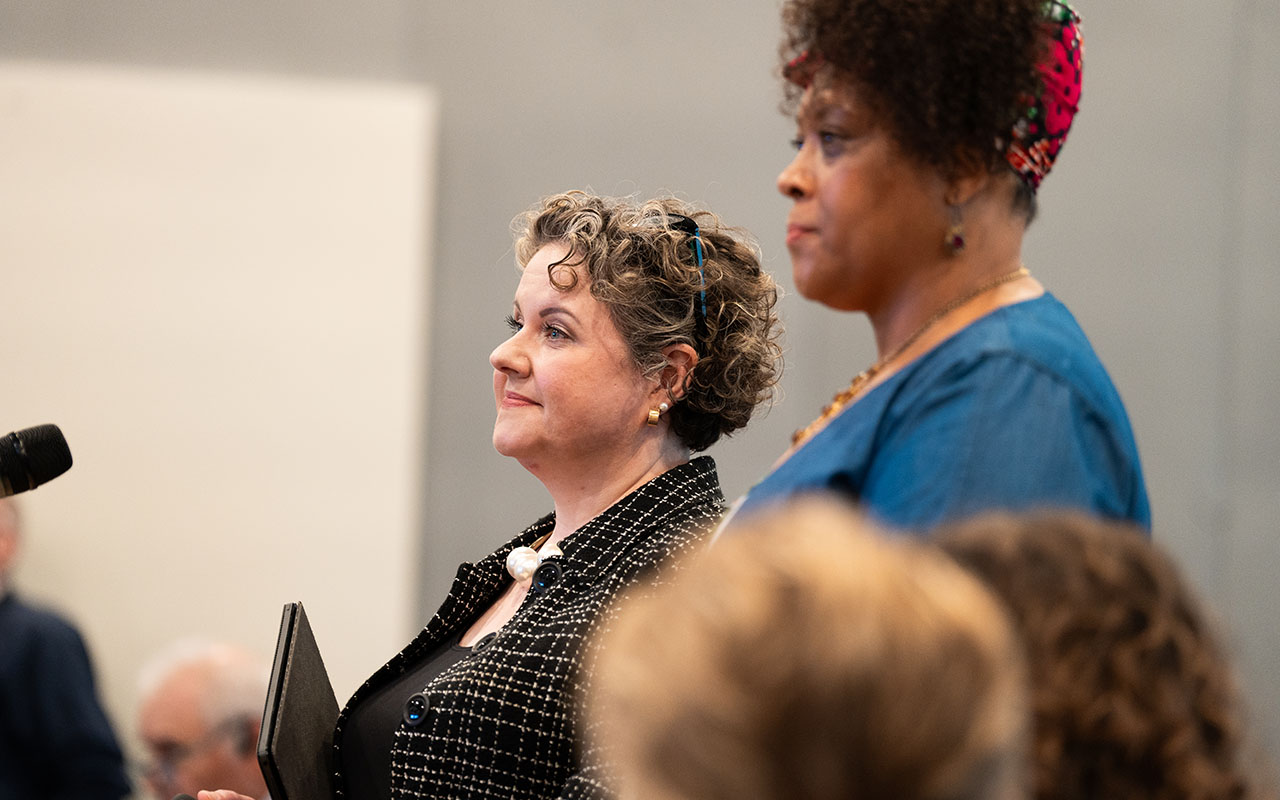
Photo: Dr. Heatherlun Uphold and Athena McKay
MSU assistant professor presents Health Equity Report Card to Board of Trustees
Heatherlun Uphold, assistant professor in the Charles Stewart Mott Department of Public Health and the Department of Translational Neuroscience at the MSU College of Human Medicine, presented her research to the Board of Trustees on the Health Equity Report Card, or HERC. The HERC is a digital tool designed to improve quality of life. Developed by Uphold and Flint community partners, it aims to explain the overall landscape of community health with a special focus on disparities between geographic locations and populations. The HERC is used by community-based organizations, nonprofits, policymakers, and local residents interested in data specific to Genesee County and the city of Flint.
Contact: Dalin Clark, Health Sciences, clarkd65@msu.edu or 616-308-8590.
MSU to expand chip-testing facility at FRIB to meet critical national need
MSU will expand its K500 Chip Testing Facility at the Facility for Rare Isotope Beams through the addition of two user vaults. The investment responds to a critical national need identified by the National Academies for increased chip-testing infrastructure with heavy-ion beams from particle accelerators. In these tests, computer chips are exposed in a short time to the same dose of natural cosmic rays they will receive during operation. Cosmic rays impinge on the earth at all times and could upset the location of atoms in the chip, rendering it inoperable. By subjecting chips to these conditions in controlled environments, their resilience and reliability is assessed, ensuring they will perform as expected throughout their service life, particularly in applications like aviation and autonomous vehicles. The addition also affords opportunities for MSU students who pursue their education in electrical engineering. The expanded K500 Chip Testing Facility leverages a $14 million contract from the federal government, which supports the refurbishment of the world’s first superconducting cyclotron — the K500 built at MSU in the 1980s — into a heavy-ion chip testing facility. As part of the construction process, MSU will take the opportunity to integrate the addition into the MSU campus scenery, and will incorporate public art as part of the project.
Contact: Karen King, FRIB senior communications manager: 517-908-7262, kingk@frib.msu.edu; Thomas Glasmacher, FRIB director: 517-08-7710, glasmach@frib.msu.edu; Alexandra Gade, FRIB scientific director: 517-908-7441, gade@frib.msu.edu; and John Papapolymerou, electrical and computer engineering chairperson, College of Engineering: 517-355-5066, jpapapol@msu.edu
MSU Board of Trustees approved a resolution for Community Music School – Detroit operations
The board has approved a $250,000 endowment to support the Community Music School's Detroit operations and to establish a fund within the College of Music. This endowment will provide significant support for students by offering high-quality and accessible sequential music education. Programs include early childhood music, music therapy, group and private lessons, youth ensembles, adult ensembles, and music production classes. The endowment will ensure tuition assistance of up to 100% based on financial need for students aged 9 to 17 and will also facilitate instrument loans. The program has already enrolled 8,452 students, offering over 50 classes weekly. Since its inception in 2009, the program has benefited 34,582 students through MSU's investment of $3.65 million.
Contact: Michael Sundermann, sunderm7@msu.edu.
The MSU Board of Trustees approved a resolution for the College of Education
The board approved a $400,000 endowment fund named after Dr. Betty Z. Del Din to support Higher, Adult and Lifelong Education, or HALE, in the Department of Educational Administration. For Dr. Del Din, lifelong and continuing education were always central to her work as a student, teacher and advisor. Her educational pursuits culminated in a doctorate from MSU. For many years, she worked with students and staff in Student Affairs and Services.
Contact: Lauren Knapp, laeknapp@msu.edu.
Faculty appointments with tenure
- Maryam Goudarzi,Ph.D., associate professor, Department of Biochemistry and Molecular Biology, effective Aug. 16, 2024.
- Sriram Kalyanaraman,Ph.D., Brandt Professor, Department of Media and Information, with tenure, effective Aug. 16, 2024.
- Juan Mundel,Ph.D., associate professor, Department of Advertising and Public Relations, effective Aug. 16, 2024.
- Holly Wang, Ph.D., professor, Department of Agricultural, Food and Resource Economics, effective Aug. 16, 2024.
Other personal actions
- Glenn Chambers, Ph.D., interim dean, Residential College in the Arts and Humanities, for an additional title of interim dean, Honors College, effective June 10, 2024.
- Matthew Daum, Ph.D., school director and professor, School of Packaging, for a change in title to dean, College of Agriculture and Natural Resources, effective July 1, 2024.
- Kimberly Dodd, Ph.D., director, Veterinary Diagnostic Laboratory, for a change in title to dean, College of Veterinary Medicine, effective Aug. 1, 2024.
- Norman Hubbard, MBA, senior associate vice president, Health Sciences EVP, for a change in title to senior vice president, Health Sciences, effective July 1, 2024.
- Yen-Hwei Lin, Ph.D., chairperson and professor, Department of Linguistics, Languages and Cultures, for a change in title to interim dean, College of Arts and Letters, effective July 1, 2024.
- David Souder, Ph.D., professor, Department of Management and Eli and Edythe L. Broad dean of the Eli Broad College of Business, effective July 8, 2024.
- Aron Sousa, MD, FACP, dean, College of Human Medicine, for an additional title of executive dean, Office of the Provost, effective July 1, 2024.

